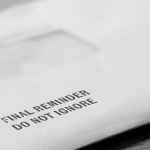Debt recovery isn’t just about chasing payments anymore. With cash flow issues increasing, creditors need to take action. This blog outlines the main legal tools for recovering commercial debts and how to use them effectively in today’s economy.
The Late Payment Act 1998
The Late Payment of Commercial Debts (Interest) Act 1998 provides creditors with:
- Interest at 8% above the Bank of England base rate
- Fixed compensation between £40 and £100 based on the invoice value
- Reasonable recovery costs if they exceed the fixed fee
However, many businesses still do not use it. Adding these charges to overdue invoices shows that late payment has consequences and often leads to faster payments.
Court Proceedings
Still a Viable Option Court claims may seem costly and slow, but they can be effective when:
- The debt is over £10,000, allowing for cost recovery if you win
- You’ve followed the right pre-action procedure
- You act quickly to apply for judgment and enforcement
A County Court Judgment (CCJ) can impact the debtor’s credit rating and exert real pressure on directors and finance teams.
High Court Enforcement
If your County Court Judgment is for £600 or more, you can transfer it to the High Court for enforcement. High Court Enforcement Officers (HCEOs) have more power than regular bailiffs. They can:
- Visit business or residential locations
- Seize goods
- Secure repayment plans with pressure
Using HCEOs demonstrates seriousness and increases the chances of receiving payment.
Charging Orders and Orders for Sale
If the debtor owns property, a charging order secures the debt against it. In some cases, you can even apply to force a sale to get what’s owed. This is useful for:
- Personal guarantees tied to residential property
- Company directors with investment properties
- High-value debts where enforcement options are limited
Third-Party Debt Orders (Bank Account Freezing)
If you know the debtor’s bank account or are aware of a third party who owes them money, a third-party debt order can be used to freeze those funds before they are gone. This works best when:
- You have a fresh judgment
- You act quickly
- The debtor keeps funds in a known account It offers a direct way to get paid without relying on the debtor’s cooperation.
Director Disqualification Warning Letters
When a company consistently fails to pay creditors, especially after a County Court Judgment, it can raise alarms with the Insolvency Service. Creditors can report this conduct and mention the possibility of director disqualification in their correspondence. While this isn’t a legal tool, it can effectively pressure the debtor when used properly.
Alternative Dispute Resolution (ADR)
In some cases, formal litigation might not be the best option. Mediation or structured negotiation can be quicker and cheaper, especially when a long-term commercial relationship is at stake. However, use ADR from a position of strength: only when the debtor has something to lose and knows that court action is the next step.
How Debt-Claims.com Can Support Creditors
For commercial creditors looking for a faster, more efficient way to recover unpaid debts, Debt-Claims.com provides a fully digital, Solicitor-backed recovery process.
Key features include:
- An online platform to issue Letters Before Action, statutory demands, and County Court claims
- Clear fixed fees with no hidden costs
- Direct access to qualified debt recovery solicitors
- Full integration with High Court enforcement options
- Tools to track and manage recovery progress in real time By combining legal know-how with smart technology
Debt-Claims.com helps businesses recover debts more quickly while keeping compliant with pre-action requirements and court rules. Whether you’re pursuing one unpaid invoice or managing many claims, the platform is designed to make debt recovery easier and more cost-effective.
Conclusion
Debt recovery in 2025 isn’t about making threats; it’s about knowing the effective tools and using them swiftly and confidently. Creditors who delay or who don’t use their legal protections are more likely to face bad debt. Whether it’s court action, statutory interest, targeted enforcement, or using digital solutions like Debt-Claims.com, the options are available. Use them wisely.


